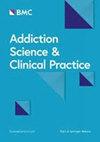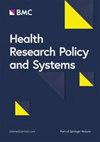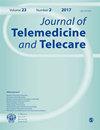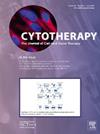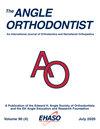中文名称:
成瘾科学与临床实践
期刊缩写:
ADDICT SCI CLIN PRAC
影响因子:
3.2
ISSN:
print: 1940-0640
on-line: 1940-0640
on-line: 1940-0640
研究领域:
Psychology-Clinical Psychology
创刊年份:
2012年
自引率:
10.80%
Gold OA文章占比:
99.50%
原创研究文献占比:
95.65%
SCI收录类型:
Science Citation Index Expanded (SCIE) || Social Science Citation Index (SSCI) || Scopus (CiteScore) || Directory of Open Access Journals (DOAJ)
期刊介绍英文:
Addiction Science & Clinical Practice provides a forum for clinically relevant research and perspectives that contribute to improving the quality of care for people with unhealthy alcohol, tobacco, or other drug use and addictive behaviours across a spectrum of clinical settings.
Addiction Science & Clinical Practice accepts articles of clinical relevance related to the prevention and treatment of unhealthy alcohol, tobacco, and other drug use across the spectrum of clinical settings. Topics of interest address issues related to the following: the spectrum of unhealthy use of alcohol, tobacco, and other drugs among the range of affected persons (e.g., not limited by age, race/ethnicity, gender, or sexual orientation); the array of clinical prevention and treatment practices (from health messages, to identification and early intervention, to more extensive interventions including counseling and pharmacotherapy and other management strategies); and identification and management of medical, psychiatric, social, and other health consequences of substance use.
Addiction Science & Clinical Practice is particularly interested in articles that address how to improve the quality of care for people with unhealthy substance use and related conditions as described in the (US) Institute of Medicine report, Improving the Quality of Healthcare for Mental Health and Substance Use Conditions (Washington, DC: National Academies Press, 2006). Such articles address the quality of care and of health services. Although the journal also welcomes submissions that address these conditions in addiction speciality-treatment settings, the journal is particularly interested in including articles that address unhealthy use outside these settings, including experience with novel models of care and outcomes, and outcomes of research-practice collaborations.
Although Addiction Science & Clinical Practice is generally not an outlet for basic science research, we will accept basic science research manuscripts that have clearly described potential clinical relevance and are accessible to audiences outside a narrow laboratory research field.
CiteScore:
| CiteScore | SJR | SNIP | CiteScore排名 |
|---|---|---|---|
| 3.9 | 1.307 | 1.062 | 学科 排名 百分位 大类:Psychology 小类:Clinical Psychology 110 / 311 64% 大类:Medicine 小类:Psychiatry and Mental Health 251 / 567 55% |
发文信息
中科院SCI期刊分区
2025年3月20日发布
| 大类 | 小类 | TOP期刊 | 综述期刊 |
|---|---|---|---|
| 2区 医学 | 2区 药物滥用 SUBSTANCE ABUSE | 否 | 否 |
2023年12月发布
| 大类 | 小类 | TOP期刊 | 综述期刊 |
|---|---|---|---|
| 2区 医学 |
2区
药物滥用
SUBSTANCE ABUSE
|
否 | 否 |
WOS期刊分区
| 学科分类 |
|---|
Q1SUBSTANCE ABUSE |
历年影响因子
| 2019年 | 3.0880 |
|---|---|
| 2020年 | 3.5440 |
| 2021年 | 4.3290 |
| 2022年 | 3.7000 |
| 2023年 | 3.7000 |
| 2024年 | 3.2000 |
历年发表
| 2012年 | 127 |
|---|---|
| 2013年 | 111 |
| 2014年 | 22 |
| 2015年 | 163 |
| 2016年 | 18 |
| 2017年 | 40 |
| 2018年 | 28 |
| 2019年 | 47 |
| 2020年 | 42 |
| 2021年 | 74 |
| 2022年 | 64 |
投稿信息
出版语言:
English
出版国家(地区):
ENGLAND
审稿时长:
28 weeks
出版商:
BioMed Central
编辑部地址:
CAMPUS, 4 CRINAN ST, LONDON, ENGLAND, N1 9XW
Addiction Science & Clinical Practice - 最新文献
Inpatient addiction care is associated with increased vaccinations, medication for opioid use disorder and naloxone prescribing among patients with infective endocarditis in a rural state.
Pub Date : 2025-10-16 DOI: 10.1186/s13722-025-00614-6 Eva J Farkas, Victoria Molina, Brittany Mohoney, Wendy Craig, Jessie Schaumberg, Amy McAuliffe, Kinna ThakararBarriers and facilitators of opioid treatment among Indigenous Syringe Services Program clients.
Pub Date : 2025-10-16 DOI: 10.1186/s13722-025-00604-8 Jordan Stipek, Jennifer J Mootz, Frank L Johnson, Kevin A Hallgren, Atasha L Brown, Alexandra Perron, Clinton Alexander, Brenna L GreenfieldGamblingLess: In-The-Moment: a mixed-methods acceptability and engagement evaluation of a gambling just-in-time adaptive intervention.
Pub Date : 2025-10-14 DOI: 10.1186/s13722-025-00608-4 N A Dowling, S S Merkouris, C J Greenwood, G J Youssef, A C Thomas, C O Hawker, D I Lubman, S N Rodda
免责声明:
本页显示期刊或杂志信息,仅供参考学习,不是任何期刊杂志官网,不涉及出版事务,特此申明。如需出版一切事务需要用户自己向出版商联系核实。若本页展示内容有任何问题,请联系我们,邮箱:info@booksci.cn,我们会认真核实处理。
本页显示期刊或杂志信息,仅供参考学习,不是任何期刊杂志官网,不涉及出版事务,特此申明。如需出版一切事务需要用户自己向出版商联系核实。若本页展示内容有任何问题,请联系我们,邮箱:info@booksci.cn,我们会认真核实处理。
